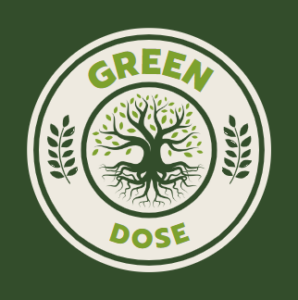In recent years, the concept of clones for sale has moved beyond science fiction and into real-world conversations. While full human cloning remains ethically and legally prohibited in most countries, the commercial availability of cloned animals, plants, and even certain types of cellular materials has generated interest and controversy alike. From agricultural innovations to the replication of beloved pets, the idea of cloning has permeated various industries, raising questions about its implications, benefits, and ethical boundaries.
Understanding Cloning
Cloning refers to the process of creating an exact genetic replica of a living organism. This can be done through several methods, the most common being somatic cell nuclear transfer (SCNT). In this technique, the nucleus of a donor cell is inserted into an egg cell that has had its own nucleus removed. The resulting embryo is genetically identical to the donor and can be implanted into a surrogate to develop.
There are three primary types of cloning:
Gene cloning – copying genes or segments of DNA.
Reproductive cloning – creating an organism that is genetically identical to another.
Therapeutic cloning – producing embryonic stem cells for medical treatment.
When discussing “clones for sale,” we typically refer to reproductive cloning—especially in the context of animals and plants.
The Animal Cloning Industry
The most common commercial application of cloning is in the animal industry. Livestock such as cows, pigs, and sheep have been cloned to replicate desirable traits such as higher milk production or leaner meat. This technology allows farmers to maintain genetic lines that are especially productive or resilient.
In the world of pets, cloning has taken on a more emotional value. Companies in countries like the United States, South Korea, and China offer services to clone dogs and cats, with prices often ranging from $25,000 to $50,000 or more. Pet owners see this as a way to preserve the memory of a beloved animal, although the results are not always predictable—while the clone is genetically identical, its behavior and personality may differ due to environmental factors.
Cloned Plants and Agriculture
Plant cloning is far less controversial and is widely used in agriculture. Unlike animal cloning, plant cloning is simple and often done through cuttings or tissue culture. This allows for mass production of crops with consistent quality, disease resistance, and yield. Bananas, apples, and grapes are commonly cloned to ensure uniformity in taste and appearance.
The commercial availability of cloned plants contributes to food security and stable supply chains, though it also raises concerns about biodiversity and genetic vulnerability. Over-reliance on a few cloned varieties could make crops more susceptible to disease or environmental changes.
Ethical and Legal Considerations
While cloning animals and plants has been embraced in certain sectors, the topic remains deeply controversial, especially when it comes to the idea of human cloning. Most countries have strict laws prohibiting human reproductive cloning due to concerns over identity, consent, and the potential for exploitation. Even therapeutic cloning, which is often aimed at curing diseases through stem cell research, has its share of critics, particularly from religious and ethical perspectives.
Animal welfare is another significant issue. Cloning is not always successful, and many cloned animals suffer from health problems or shortened lifespans. This raises questions about the morality of using cloning technology for commercial gain, particularly when it involves sentient creatures.
The Market Landscape
The market for clones is still relatively niche, but it is growing steadily. In agriculture, cloned livestock and plants are becoming more normalized, especially as regulatory frameworks evolve. In the pet industry, wealthy clients are the main consumers, but as the technology becomes more accessible, broader adoption could follow.
Biotech companies are also exploring cloning for pharmaceutical purposes. Cloned animals can be used to produce complex proteins for medicines, or to create genetically uniform models for drug testing. This offers both economic and scientific benefits but also demands robust oversight to prevent misuse.
Looking Ahead
The future of cloning is likely to be shaped by both technological advancements and evolving social norms. As genetic engineering becomes more precise through tools like CRISPR, the potential for customizing clones—for traits beyond mere replication—may become a reality. This leads to an even greater need for ethical frameworks and public discourse.
Ultimately, the concept of clones for sale is not just about what can be done, but what should be done. Balancing innovation with responsibility will be key to ensuring that cloning serves the public good rather than private interest alone. Whether it’s a champion bull, a disease-resistant crop, or a cherished pet, cloning will continue to test the boundaries of science, commerce, and morality.
